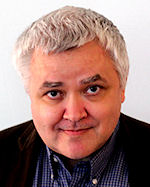Dear all,
In February, Heather Froehlich from the University of Strathclyde, Glasgow will visit the English subject and the Varieng Research Unit at the Department of Modern Languages. Heather studies representations of gender in Early Modern London plays as part of the Visualizing English Print 1470–1800 project, and she works with DocuScope, a text analysis software which provides interactive visualisation tools for corpus-based rhetorical analysis. In her research she applies corpus linguistic methods to Early Modern printed texts and early modern drama, particularly with regard to gender.
On 17–18 February, Heather will give two lectures and a workshop on Digital Humanities, corpus linguistics, and text analysis software – you are warmly welcome to attend! The events will be of interest to linguists, literary scholars, and anyone interested in Digital Humanities, students and researchers alike.
The Twitter hashtag for the events is #daftpunkDH.
See below for abstracts and details. Welcome!
Anni Sairio
Tanja Säily
Terttu Nevalainen
Monday, 17 February, 2–4 pm, Metsätalo (Unioninkatu 40), lecture room 4
“Drag and Drop it, Zip-Unzip it, View It, Code It: What are Digital Humanities?”
‘Digital Humanities’ has been gaining much traction as a buzzword in higher education. Are the digital humanities a method, a theory, or a social movement? Or is it a shifting mode of humanistic inquiry wherein traditional humanities work is supplemented by computer-assisted queries? In a roundtable format, we will discuss the role of the digital in, and alongside, more traditional humanities work.
Kirschenbaum’s essay ‘What are Digital Humanities and what is it doing in English departments’ (2012) addresses the varying ways that English departments are the ideal space for digitally-inflected humanistic inquiry – but are English departments the only place in which this can thrive? Are English departments the best place for this kind of inquiry? What can the digital humanities learn from their contemporaries in computer science, history, languages? What can these groups learn from digital humanities?
Recommended reading:
Kirschenbaum, Matthew (2012). ‘What are digital humanities and what’s it doing in English departments?’. Debates in the Digital Humanities, ed. M.K. Gold. http://dhdebates.gc.cuny.edu/debates/text/38
Underwood, Ted (2011). ‘Why we don’t actually want to be the next big thing in literary studies’. The Stone and the Shell. http://goo.gl/T0eCvJ
Wilkens, Matthew (2012) ‘Canons, Close Reading, and the Evolution of Method’. Debates in the Digital Humanities, ed. M.K. Gold. http://dhdebates.gc.cuny.edu/debates/text/17
Tuesday, 18 February, 10–12 am, Main Building, auditorium XII
“What Do You Do with Millions of Words?”
With the rise of digitized collections of historical documents, we suddenly have a lot more information than we know how to address as linear readers. This is a practical, hands-on approach to doing digital humanities research: What can a computer tell us that a human reader can’t, and how does the human inform and guide the computer-aided analysis? Building on principles of corpus linguistics, I will introduce DocuScope, a rhetorical analysis software, and address ways of approaching very large corpora with computer-aided analysis. In this talk we will discuss other possibilities for DocuScope in use, such as custom dictionary building, visualization, ways other tools can supplement DocuScope’s output, and data management. Special attention will be given to issues surrounding scaling up from Shakespeare to a corpus of Early Modern drama to all of EEBO-TCP and developing subcorpora, all with regards to the difficulties and benefits of using progressively larger datasets.
Recommended Reading:
Ishizaki, Suguru and David Kaufer (2011). ‘Computer-aided Rhetorical Analysis’. Applied Natural Language Processing and content analysis: Identification, Investigation, and Resolution, ed. Philip McCarthy and Chutima Boonthum. Idea Group Inc (IGI), 275–291.
Hope, Jonathan and Michael Witmore (2010). ‘The hundredth psalm to the tune of ‘Green Sleeves’: Digital Approaches to the Language of Genre’, Shakespeare Quarterly, vol. 61, no. 3 pp. 357–90.
Witmore, Michael. (2010). ‘Text, The massively addressable object’. Wine Dark Sea. http://winedarksea.org/?p=926
DocuScope workshop on Tuesday, 18 February, 1–4 pm, Metsätalo (Unioninkatu 40), room A114
In this workshop we will explore DocuScope and its functions by trying it out on the Corpus of Early English Correspondence (CEEC), a letter corpus developed in the Varieng Research Unit at the University of Helsinki: we will find out how the data in these letters can be visualised and what a rhetorical analysis tool can add to standard corpus-linguistic methods.
To learn more about DocuScope, see http://www.cmu.edu/hss/english/research/docuscope.html
To learn more about Heather, see http://hfroehlich.wordpress.com/ and @heatherfro on Twitter.
 Kielitieteilijä Maxim Krongauz on Venäjällä superjulkkis, jonka tuntevat kaikki. Hänen kirjoittamansa kirja Russki jazyk na grani nervnogo sryva (Venäjän kieli hermoromahduksen partaalla) on bestseller. Venäjän televisio ja erilaiset radiokanavat lähettävät viikoittain suosittuja ohjelmia, joissa puidaan venäjän kielen tilaa. Kuohuntaa kielen ympärillä on myös netissä. Aina kun väittelyissä tarvitaan asiantuntijaa, paikalle kutsutaan professori Maxim Krongauz Moskovan humanistisesta yliopistosta. Kiivaankin sanaharkan keskellä hän on itse rauhallisuus, kontrasti kielen järkyttävästä tilasta vaahtoaville.
Kielitieteilijä Maxim Krongauz on Venäjällä superjulkkis, jonka tuntevat kaikki. Hänen kirjoittamansa kirja Russki jazyk na grani nervnogo sryva (Venäjän kieli hermoromahduksen partaalla) on bestseller. Venäjän televisio ja erilaiset radiokanavat lähettävät viikoittain suosittuja ohjelmia, joissa puidaan venäjän kielen tilaa. Kuohuntaa kielen ympärillä on myös netissä. Aina kun väittelyissä tarvitaan asiantuntijaa, paikalle kutsutaan professori Maxim Krongauz Moskovan humanistisesta yliopistosta. Kiivaankin sanaharkan keskellä hän on itse rauhallisuus, kontrasti kielen järkyttävästä tilasta vaahtoaville.